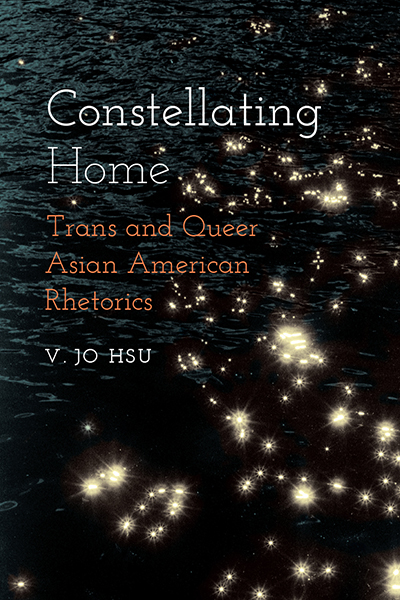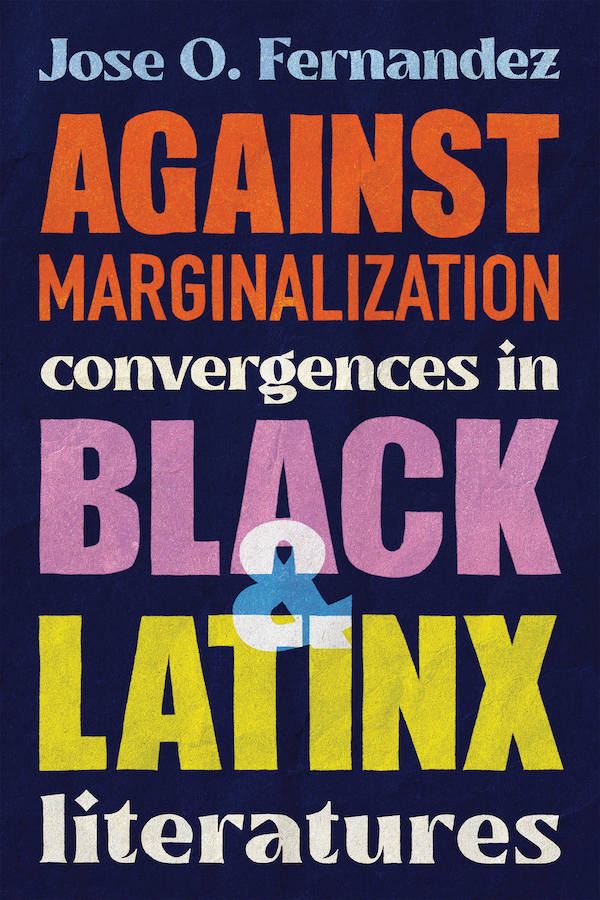Constellating Home: Trans and Queer Asian American Rhetorics by V. Jo Hsu examines how queer and trans Asian American (QTAPI) individuals have reshaped the narratives around their belonging in the United States or elsewhere. Hsu recognizes the ways pervasive narratives like the model minority myth have imbued the meaning of Asian American belonging with capitalist, heteronormative, ableist, racist, and patriarchal notions. Exploring oral histories, visual representations, essays, and numerous other forms of rhetoric, Hsu engages in “diasporic listening,” a method that unpacks how QTAPI individuals have wrestled with these pervasive narratives and found ways of redefining their belonging. By focusing on the stories of trans, nonbinary, disabled, and other minoritized groups within the Asian American diaspora, Hsu shows how these diverse and individual stories contribute more robust meaning around being and belonging as an Asian American.
Keyword: narrative
Review of Against Marginalization: Convergences in Black and Latinx Literatures by Jose O. Fernandez (The Ohio State University Press)
Jose O. Fernandez’s Against Marginalization: Convergences in Black and Latinx Literatures is an innovative project that takes conversations about literary and cultural history in a new direction. Recognizing the efforts of Black and Latinx scholars in crafting distinct literary traditions and histories, Fernandez uses his book to argue for cross-ethnic literary studies and identify similarities between Black and Latinx traditions. This endeavor revolutionizes conversations about literary history of the United States and challenges narratives of exclusion and silencing. This book serves to show the importance of knowing the names of authors and artists, and the communities that fought for them, because they make up the fabric of US history. To learn those names next to Faulkner, Twain, Hemingway, Steinbeck, and Fitzgerald not only makes them part of American literary tradition but also spotlights their absence and exclusion in a way that expands the boundaries of “literary tradition.” This review takes seriously Fernandez’s project, which opens exciting avenues for cross-ethnic historic study while also examining opportunities for future study.
The Place and Pace to Remember: Keeping What the Pandemic Has Given Us
We begin with the question “what do we want to keep that the pandemic has given us?” Largely co-written in 2021, this reflexive essay serves as a snapshot in time, at one stage of the pandemic, reflecting upon earlier, shared experiences at one institution of higher education. We locate each of our identities and positionalities in that space and beyond. Our essay uses Moya Bailey’s 2021 discussion of an ethics of pace to frame our thinking and collective memory work and to counter what we identified as the distinct efforts of institutions of higher education to not have places for institutional memory. We articulate that without memory places, it is impossible to build both a history of justice work in institutions of higher education and accountability that this justice work is seen through. And we ask, how are we to build justice and healing in higher education when the place is designed so that we can’t remember things, and when there seems to be a goal to not have institutional memory that remembers how, why, and by whom justice work is done? We answer the question: “what do we want to keep that the pandemic has given us?” with this: “the pace and place to remember.”
Review of Infrastructures of Apocalypse: American Literature and the Nuclear Complex by Jessica Hurley (University of Minnesota Press)
Jessica Hurley’s Infrastructures of Apocalypse: American Literature and the Nuclear Complex examines how postwar literature has responded to discourses, both official and unofficial, of nuclear weaponry and nuclear power. Hurley explores how literature from a variety of genres offer a different sense of past, present, and future in response, thus constructing the apocalypse as a transfiguration rather than as a revelation.
Not About White Workers: The Perils of Popular Ethnographic Narrative in the Time of Trump
This essay rasies three concerns about popular contemporary ethnographies that focus on the rural and white “working class.” First, these ethnographies are not treated as partial accounts of cultural experience but are instead taken as straightforward political and economic analyses. Second, these ethnographies amplify an “empathy mandate,” which demands that our political actions center on trying to understand misunderstood populations—in this case, the so-called “white working class.” Third, by disarticulating the cultural markers of “working classness” from the material conditions of class, these ethnographies obscure the political significance of “working class.” Ethnographies of “white working class” experience may be useful only if we treat them as small openings that lead to bigger and broader stories, rather than as complete and transparent explanations of what is going on.
Queering the Archive
This CSA plenary talk discusses a performance based on oral histories collected in the author’s book, ‘Sweet Tea: Black Gay Men of the South—An Oral History’




